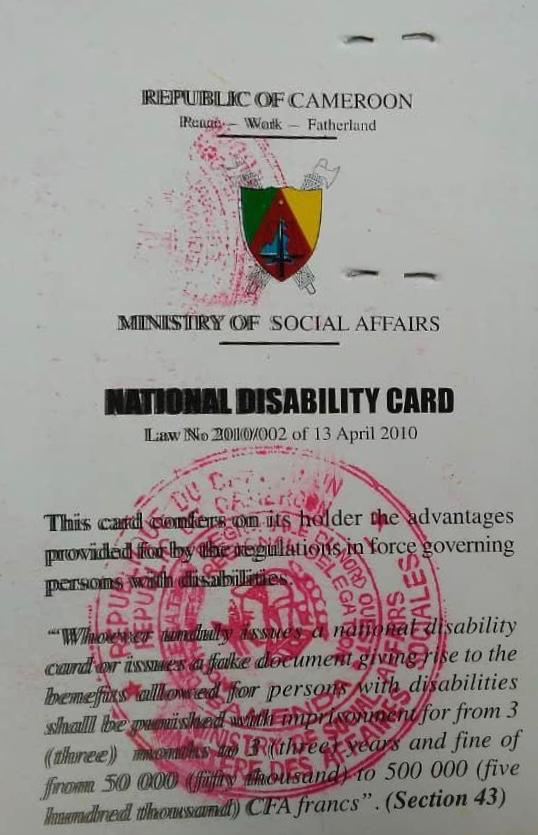
If you are interested in this topic, review the webinar presentation, or watch the recorded webinar.
In this episode of the disability blog series, we describe how engaging policy-makers in evidence implementation project increased ownership of the process. Evidence-informed decision-making (EIDM) is key for more effective policies, however, there is a lack of engagement of policy-makers in the evidence ecosystem. This blog post explores the different levels of which the policy-makers were engaged in the project from the beginning to the end of the project. This project was funded by the Wakka Foundation and SSBK Holland and implemented by eBASE Africa. This includes the design, after qualitative results, after evidence synthesis/analysis, and after the final project.
Evidence can help to improve policy-making throughout the life cycle of a child with disabilities (CWD) by informing the development of innovative policies and strengthening of their rights as well as assessing their usefulness and impact. In Cameroon currently, policies are not informed by the best available evidence to the best of our knowledge particularly for people with disability (PWD). This happens at national, regional, and decentralized levels stretching to community-based decision-making including local chiefs, quarter heads, parent-teacher associations (PTAs). The downside of this approach is that the policies tend not to be effective as they would be if they were informed by evidence and the effect is even worse for PWD. In instances where policies are evidence-informed, there may be challenges with the implementation of evidence-informed policies. For example, the UN Convention for Rights of People with Disabilities (CRPD) and the WHO guidelines for community-based rehabilitation (CBR) have informed policies in countries in Middle Africa. However, enabling the implementation of these policies remains a challenge. There is a need for a portal that translates this evidence and these policies into actionable criteria for families while considering the voice, values, preferences, and perspectives of people with disabilities.
We conducted a policy desk review and key informant interview with the Regional Chief for persons with Disability in the North west Region of Cameroon. The interviews were very interactive as there was room for them to throw light on the policies they already have and express their expectations with regards to amendments. We also discovered that most of the policies were still on paper and implementation was still at infancy. The Ministry of Social Affairs was very pleased with this innovation of bringing evidence to households and communities of children with disabilities to promote their rights and meet their needs. After developing the toolkit, we engaged with policy-makers for a review session.
Muluh is a 9-year-old boy with a disability who lives at Mbengwi road in Bamenda with his parents. Before we met Muluh, he did not own a disability card. He used to go to Treasure Centre and his mother complains that school fees are very expensive; sometimes she is not able to pay because she doesn’t have a secure source of income. Even his hospital bills are borne by his family and sometimes this is burdensome. One of the benefits from the Cameroon National Policy on the protection of rights of people with disabilities in Cameroon is free education and reduced medical fees amongst others but Muluh is not able to enjoy these rights because he doesn’t have a disability card.
This disability card challenge makes policy implementation ineffective. After working sessions and collaboration with the regional chief of persons with disability in Bamenda, they have relaxed the procedure for getting a disability card. Muluh is now a proud owner of a disability card thanks to our intervention. The regional chief of people living with disabilities also provided us with the National Policy on the protection of people living with disabilities (Law N0 2010/002 of 13 April 2010 on the Protection of People With Disability) to guide the process of developing the toolkit. They also recommended a detailed strategy for expenses of the income from income-generating activities and they also recommended financial institutions to foster the creation of bank accounts for children with disabilities.
Acknowledgments
The authors recognise and thank the eBASE team, the Regional Chief of PWD in Bamenda (Ministry of Social Affairs), families of children with disability in Bamenda, and evidence leaders championing the production and publishing of high-quality research evidence.
Disclaimer
The views expressed in published blog posts, as well as any errors or omissions, are the sole responsibility of the author/s and do not represent the views of the Africa Evidence Network, its secretariat, advisory or reference groups, or its funders; nor does it imply endorsement by the afore-mentioned parties.